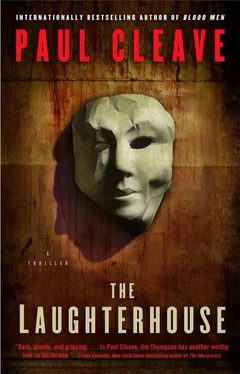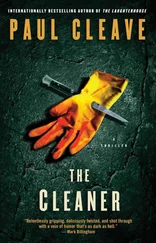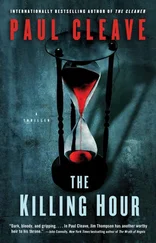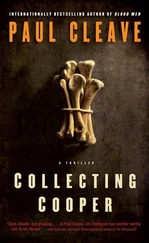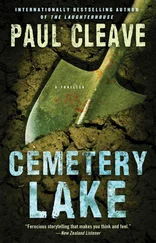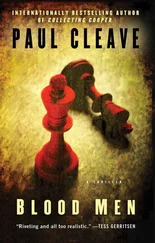Paul Cleave - The Laughterhouse
Здесь есть возможность читать онлайн «Paul Cleave - The Laughterhouse» весь текст электронной книги совершенно бесплатно (целиком полную версию без сокращений). В некоторых случаях можно слушать аудио, скачать через торрент в формате fb2 и присутствует краткое содержание. Год выпуска: 2012, ISBN: 2012, Издательство: Atria Books, Жанр: Триллер, на английском языке. Описание произведения, (предисловие) а так же отзывы посетителей доступны на портале библиотеки ЛибКат.
- Название:The Laughterhouse
- Автор:
- Издательство:Atria Books
- Жанр:
- Год:2012
- ISBN:9781451677959
- Рейтинг книги:5 / 5. Голосов: 1
-
Избранное:Добавить в избранное
- Отзывы:
-
Ваша оценка:
- 100
- 1
- 2
- 3
- 4
- 5
The Laughterhouse: краткое содержание, описание и аннотация
Предлагаем к чтению аннотацию, описание, краткое содержание или предисловие (зависит от того, что написал сам автор книги «The Laughterhouse»). Если вы не нашли необходимую информацию о книге — напишите в комментариях, мы постараемся отыскать её.
The Laughterhouse — читать онлайн бесплатно полную книгу (весь текст) целиком
Ниже представлен текст книги, разбитый по страницам. Система сохранения места последней прочитанной страницы, позволяет с удобством читать онлайн бесплатно книгу «The Laughterhouse», без необходимости каждый раз заново искать на чём Вы остановились. Поставьте закладку, и сможете в любой момент перейти на страницу, на которой закончили чтение.
Интервал:
Закладка:
This isn’t a burglary gone wrong or a fight over who should or shouldn’t park out front-whoever killed this man invested a lot of rage into the act.
Schroder comes to the doorway and stops. He crouches down and undoes his shoes, which are covered in mud. He takes them off and in the process nearly tips over. He sits them off to the side of the door, then rolls up the cuffs of his pants, which are also soaking wet. Then he comes in and stands next to me. He looks down at his feet, then shrugs. He’s chewing on a piece of peppermint gum to mask the smell of beer, but his suit needs to chew on the same stuff to complete the illusion. He spends ten seconds looking at the body before fixating on me.
“Jesus, somebody must have really hated him,” he says, then he puts a hand on my shoulder for the second time today and hiccups into his other hand. “Look, Tate, you shouldn’t be in here,” he says, and before I can say anything he adds “but I’m grateful you are. I just need a little bit more time to get my head in the game. Forensics are on their way, should only be a few minutes.”
“And the others?”
“The others are loading up on coffee and breath mints so they can start asking questions. None of them are going to come within thirty feet of this room.”
“You should send them home, Carl, and you should go home too.”
“I know, but then what? Come back tomorrow and hope for the best? Somebody needs to be here, Tate.”
“And you could all be fired if you stay.”
“Yeah, then the department would have to hire you, wouldn’t they? They’d need at least somebody manning the phones.”
“Anything you find will get tossed out in a court of law if anybody gets a whiff you were drunk,” I tell him.
“I’m not drunk, and in twenty-four hours this case could end up being as cold as my last beer if we don’t do anything about it now.”
“You shouldn’t be here.”
“And neither should you. But I’m a realist, Tate, and right now I know I could do with your help.”
“Just saying that proves you’re drunk,” I tell him.
He crouches down next to the couch to get a good look at the dead guy’s face. “Herbert Poole with an e has been living here for eight years,” he says, and he really does sound sober. Out the door and in the distance one of the minivan cabs is being loaded back up with some of the detectives, including Detective Kent. Could be they’re all off to grab coffee and doughnuts. “Lots of friends, no enemies, and even if people here didn’t like him this doesn’t seem the way they’d show it. More likely they cut his roses or shorten a leg on his walker.”
The words on Herbert’s forehead say You didn’t care enough. It even has the apostrophe. “An ex-wife maybe?” I ask.
“He doesn’t have one. He’s a widower.”
“An ex-girlfriend? A son he didn’t get along with? It could mean a hundred different things.”
The living room is full of the kind of sentimental stuff that in one or two week’s time a family member will box up with the intent of putting it on display but will put it into storage instead. There are photos of children and grandchildren, days out at the park, at the beach, at sporting events. If life was more like a Harry Potter novel, the people in those photographs would be crying out and telling us what went on in this room tonight. There’s a half-empty tin of beer and a dinner plate resting on the coffee table, and aside from all the blood, the rest of the room seems to be immaculate. In life Herbert Poole with an e was tidy.
“He has two children,” Schroder says, “according to the manager. And his wife died about ten years ago from a brain tumor. We’ll talk to the kids. I don’t know, maybe one of them was pissed off with their dad.”
We say nothing for a few seconds, letting the tragedy of Herbert Poole and his family settle in.
“Anything taken?” I ask.
“Jesus, Tate, I can’t know everything yet.”
Herbert Poole’s head is tilting back as it rests over the arm of the couch, one arm pinned beneath him, the other in his lap, his body mostly on its side. His face is toward the wall, where a photograph of what is probably him and his wife from forty years ago stares back, though the features in that photo aren’t shared with the features on the dead man’s face. For Herbert Poole it was probably a good thing to look at while his life was draining out of him.
“Impressions? Thoughts?” Schroder asks.
“Bloody footprints head up the hallway, then head back,” I say, looking at the stains on the carpet. “Killer wandered the house for something.”
“Then put these on,” he says, and hands me a pair of latex gloves.
I step through the living room, careful not to get blood on my shoes, and into the hall. The footprints lead into the bathroom. The shower walls are wet and there is a pair of pants and a shirt wadded up on the floor. I poke at them, lifting a corner until I can see blood. There’s a wet towel lying next to them. The killer came in here and showered, he washed the blood off, then changed clothes but wore the same shoes. That could mean he had somewhere to go immediately afterward that wasn’t home. Forensics will pull hair from the clothes. They’ll find plenty of DNA-and if the killer has a record, we’ll find him. Problem is DNA is going to take a few weeks. Other problem is the killer may not have a record.
I head back into the hall. There are more photographs in the bedroom, faces of people yet to be devastated, yet to know a man they knew is no longer with us. I move from one photo to the next, random people with random thoughts, perhaps one of them random enough to have done this.
I open drawers and poke around, an entire top drawer dedicated to packets of unopened underwear and neatly folded hankies, beneath them all war medals that might belong to him or somebody else in his family. There’s one gray suit in the closet and lots of old man shirts, old man shoes, and old man ties. I thumb through some receipts. Poole had recently bought a few jazz CDs, some new slippers, a couple of paperbacks. There are letters from the hospital following up appointments-Herbert Poole wasn’t a healthy man. With his kidneys and liver shutting down, Poole’s murder is putting him into the ground about two months ahead of schedule according to the letters. Somebody just couldn’t wait. Which means it wasn’t about seeing Herbert Poole dead, it was about being responsible for seeing him dead.
I wander back down to the living room. Poole still has a blank look on his face like he can’t quite believe he’s caused all this fuss. You didn’t care enough. Care about what? Or who?
Schroder is talking on his cell phone, his spare hand rubbing at his face. There are more patrol cars outside now along with a few station wagons. The cabs have disappeared, along with ninety percent of the people that came here in them. There are forensic techs heading toward the porch. They’re wearing white nylon suits so as to not contaminate the scene like the rest of us already have. Another station wagon pulls up and Tracey Walter, the medical examiner, climbs out. She stands next to the wagon and ties her black hair up into a tight ponytail. I stand in the kitchen and listen to Schroder on his cell phone as the newcomers take over the scene. Nobody talks to me or pays me any attention. There’s a sense of authority here that was certainly lacking ten minutes ago. People are carrying aluminum suitcases full of forensic tools. Alternate sources of light are being set up, bright halogens chasing away every shadow. Within moments I’m standing in the only living room visible from outer space. Tracey approaches the body carefully, as if scared it’s about to jump up and run from her cold hands.
Читать дальшеИнтервал:
Закладка:
Похожие книги на «The Laughterhouse»
Представляем Вашему вниманию похожие книги на «The Laughterhouse» списком для выбора. Мы отобрали схожую по названию и смыслу литературу в надежде предоставить читателям больше вариантов отыскать новые, интересные, ещё непрочитанные произведения.
Обсуждение, отзывы о книге «The Laughterhouse» и просто собственные мнения читателей. Оставьте ваши комментарии, напишите, что Вы думаете о произведении, его смысле или главных героях. Укажите что конкретно понравилось, а что нет, и почему Вы так считаете.
